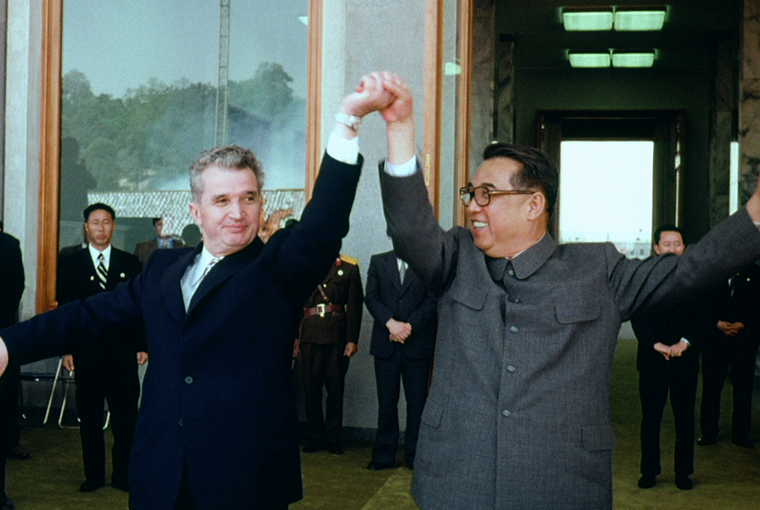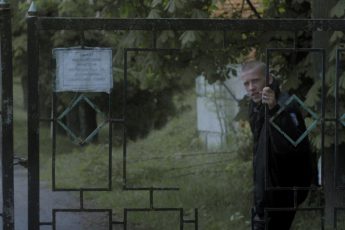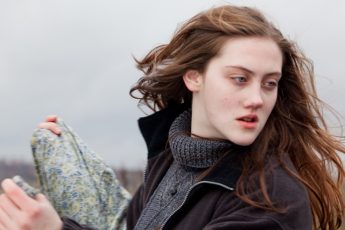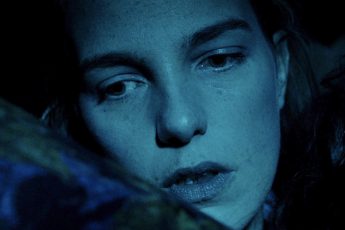Ghosts
Andrei Ujică’s Autobiography of Ceauşescu (Autobiografia lui Nicolae Ceauşescu, 2010)
Vol. 4 (April 2011) by Moritz Pfeifer
Andrei Ujică’s Autobiography of Ceauşescu is the last part of a trilogy dedicated to the fall of Communist Romania. Trying to reconstruct Ceauşescu’s private and political life, the autobiography starts off with a speech he gave at the funeral of his predecessor – Gheorghe Gheorghiu-Dej – in 1965, and ends shortly before his execution in 1989. The film is entirely composed of official archive footage, and there is no voice-over commentary to explain the sounds and images. History speaks for itself. Ujică takes advantage of the fact that politicians and political agents produced their own biopics, taking on the job of both director and actor, as media made its way into the homes of the people. “Thanks to the use of film in the second half of the twentieth century, we didn’t have to deal with casting issues”, Ujică explained during a screening at the Cinéma du Réel festival in Paris last month. Places too, appear staged, and florid decor increases as Ceauşescu’s ministry ages. Amidst this pomp, we mostly observe the dictator’s political façade, either giving ideological speeches, or just waving his left hand as he travels around the world to meet fellow friends and enemies.
Perhaps the most estranging experience of this movie is that we do not really know who this man is. He becomes less and less real as another reality takes over: that of the film’s material. The images glorify the young leader, but his role as his country’s indistinct savior quickly becomes obvious. Events, procedures, and slogans turn into daily routine. Later, as glory vanishes, that reality is hard to cast off. In Videograms, the first part of the trilogy, Ceauşescu is still waving his left hand in front of a dissolving crowd as revolutionaries make their way into the parliament. But the person in charge of filming the dictator seems embarrassed, and the camera pans to the sky.
Ujică’s own perspective is less trepidant. He decides to share the dictator’s embarrassment that, on more than one occasion, creates a comic situation. In one sequence, during the celebration of Ceauşescu’s fifty-fifth birthday, we can see one flower basket after another, the gifts of various committees, administrators, and admirers. The baskets are accompanied by the repetition of the first verses of an anniversary song, like in the scene of Duck Soup where a musical interlude is looped because Groucho Marx, as the president of Freedonia, won’t appear on time. In Duck Soup, the point is not so much the event – the arrival of the President –, but the pleasures surrounding the event that sustain the cheerfulness of the crowd. When Groucho actually arrives and the song stops, the enthusiasm disappears. Ujica’s sequence works in a similar manner. It shows that one might be better off repeating applause and rehearsing songs of commemoration, rather than allowing the event to happen, which in this case, would be to actually acknowledge Ceauşescu’s birth. His birthday is literally overshadowed by the decoration and the song, whose disproportionate regularity obviously competes with the presence of the dictator.
If this is an autobiography, then its writer is a ghost. Even in his own body, Ceauşescu doesn’t seem very natural. As he hunts, swims, dances and plays volleyball, he acts like a figure who is being overwhelmed by the most trivial situations. We neither see nor hear when a decision is being made by Ceauşescu himself, whose public declarations usually drift into monologues of ideological catchwords. But when Ujică, in a sequence near the end of the film, merges the hailing applause of his people with landscapes of Ceauşescu’s megalomaniac construction sites – like Hitler, Ceauşescu tried to reach eternity through the building of architectural impossibilities –, we might guess who the ghost-writers were. The Palace of the Parliament exists, even if it resembles a tomb. Ghosts need humans to come to life.




Leave a Comment